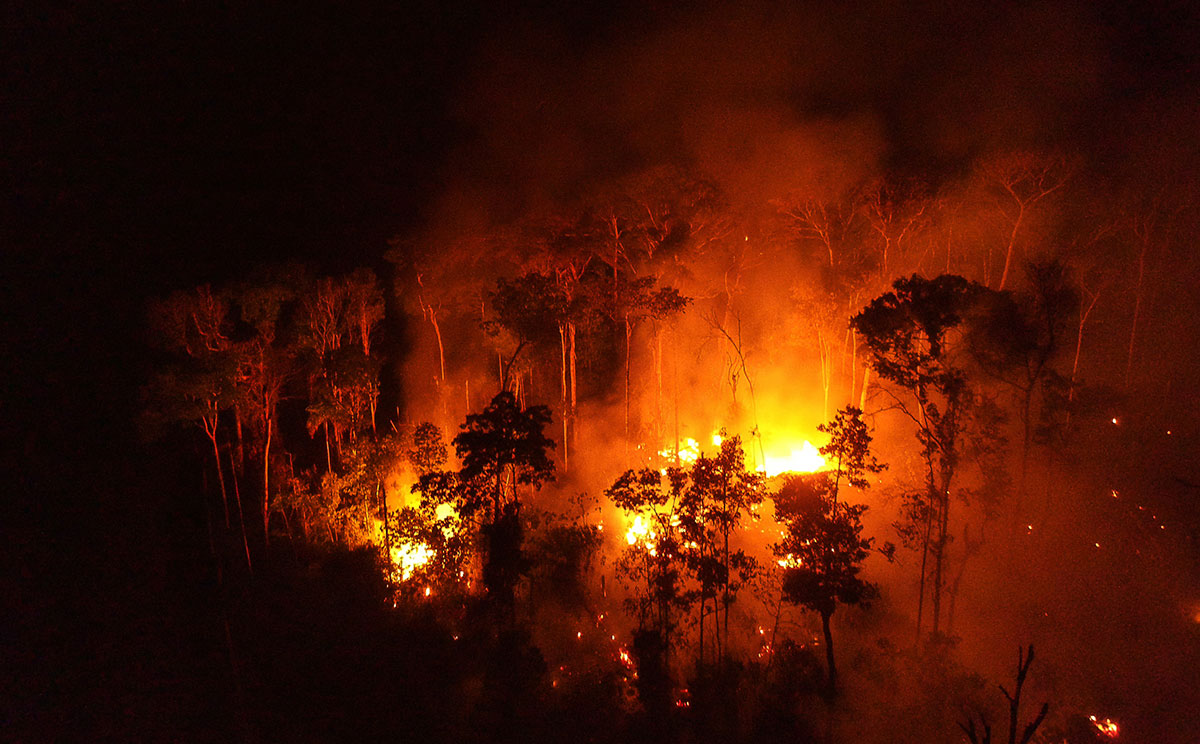Deforestation in the Amazon rainforest: a bellwether for human health

If you’re wondering about future threats to human health, you might want to pay attention to what is happening to the Brazilian Amazon, the world’s largest tropical rain forest and a hotspot of biodiversity, according to Florencia Sangermano, assistant professor of geography at Clark University.
Working with Paula R. Prist of EcoHealth Alliance and others, Sangermano is examining the links between deforestation and threats to human health. The researchers studied the effect of PM2.5 particulates — the fine particles — from forest fires on heart and respiratory diseases and the economic impact of these effects.
Over the past five decades, the Amazon has lost millions of acres of rainforest due to human activity, including forest fires used to clear the land for agriculture. These fires release noxious fumes containing fine particulate matter, which can lead to lung cancer, chronic bronchitis, stroke, and other serious health problems, Sangermano says.
Using 10 years of satellite data compiled and analyzed by Sangermano, the scientists discovered that the particulate matter can disperse over hundreds of miles, affecting people who live up to 310 miles away, according to their study recently published in Nature’s Communications Earth and Environment.
However, because forested areas have been shown to regulate and improve air quality, the scientists estimate that Indigenous territories — which have not yet been cleared— could absorb over 7,000 tons of these pollutants per year.
“Our work highlights Indigenous territories’ importance in avoiding over 15 million respiratory and cardiovascular cases, with around $2 billion saved in healthcare costs,” Sangermano says. “The project has the potential to significantly impact the future of Indigenous territories, bolstering support for the legalization, protection and expansion of their lands.”
Brazil’s new president, Luiz Inácio Lula da Silva, recently recognized Indigenous territories in the Amazon rainforest.


